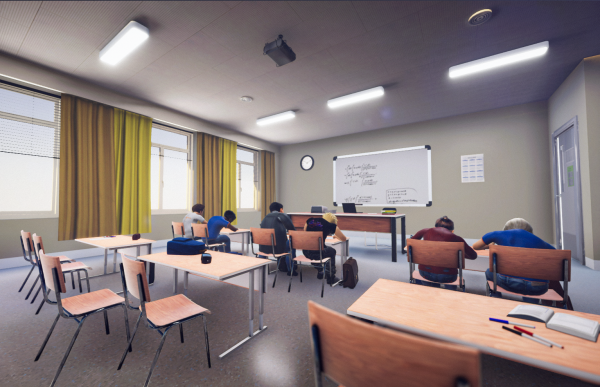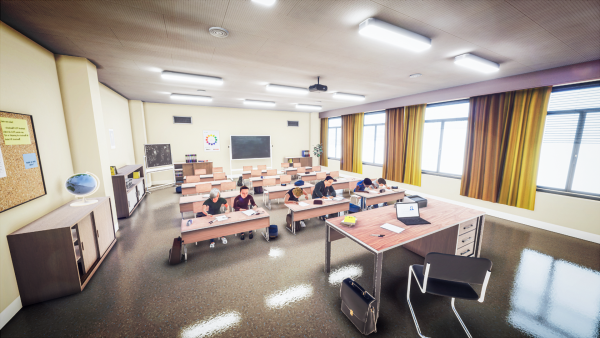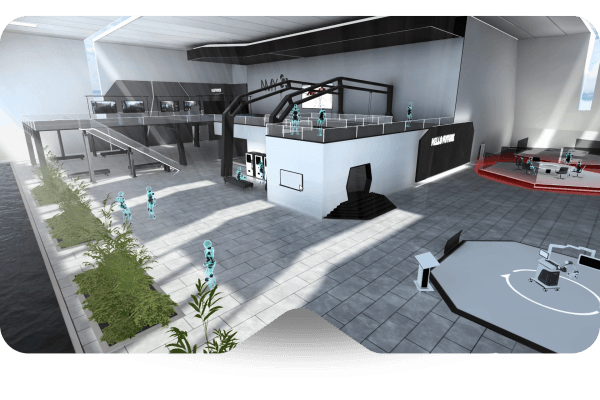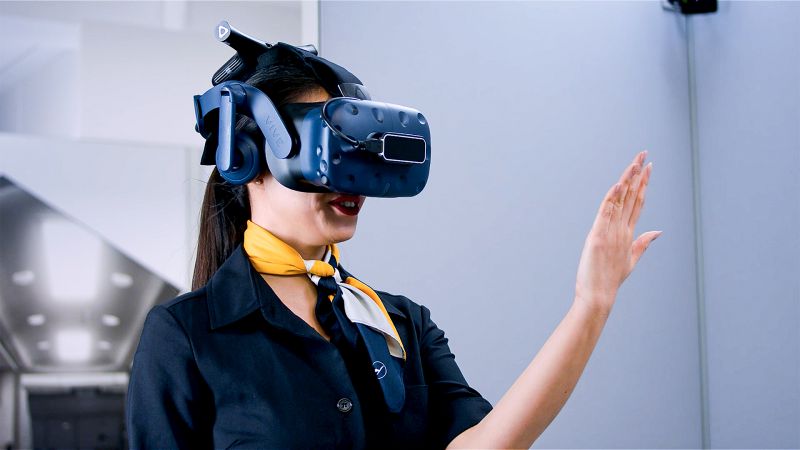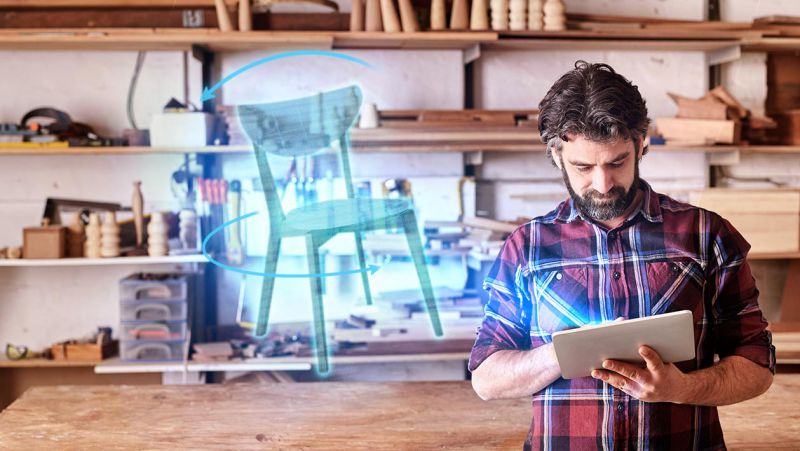The multi-user application for meetings, trainings, and simulations. The Sims are so yesterday!
Poor Service and Technology in Germany?
German bureaucracy is legendary. Unfortunately, not because of its digitization efforts. Even if you can fill out any kind of form online, at the end you will be obliged to print it out in order to sign it. Are we in Germany really this averse to technology? Or do we see an opportunity to re-establish our role in the global economy?
Digitalization in Germany – A Tiresome Story
In many areas of digitization, our authorities are lagging behind. As early as 2016, Handelsblatt compared the submission of our tax return in Germany with that in Estonia - there, it only takes a few clicks and a minimum of time. Even 6 years (!) later, not much has changed in Germany. And that despite the pandemic and the realization that digitization must be the future. We are taking it a lot slower in Germany.
Shortage of skilled workers: It won't work (yet) without people
Today, digitization is much more than making forms available online. Rather, we should be looking at how we as a country want to be digitally positioned in the future in order to overcome a prevailing problem in the economy and also society: we are suffering from a severe shortage of skilled workers. How do we get the best and most talented employees for our companies and also our government? According to politicians, through qualified immigration. However, it’s not just a question of what, but also of how. The way we teach also needs to change. The new generation of skilled workers is intrinsically digital and tech-savvy, so why shouldn't training also be completely digital? Immersive technologies such as virtual reality and augmented reality are ideal for this.
Fun Facts
-
01
1.2 Millions
Vacant jobs in Germany
-
02
900,000
Shortage of skilled workers
-
03
390
Official apprenticeship occupations
What difference do new technologies make to training?

Mixed reality applications boost job market
Why? Simply because their gamification core embodies pedagogy and motivation. They provide a higher learning curve and trainees retain content better because they are stimulated visually, haptically and auditorily. A virtual reality application is also incredibly fun. At the same time, mixed reality technologies such as augmented reality and virtual reality provide platforms for scaling learning content while being resource-efficient.
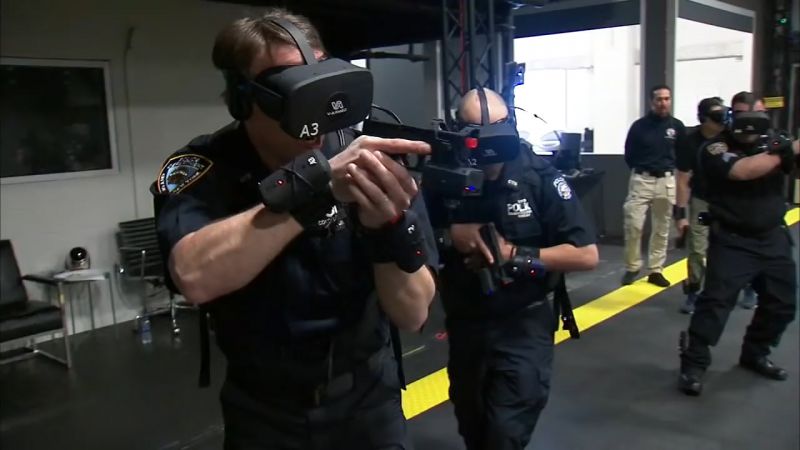
Virtual Reality Training for better education
What is still in its infancy in Germany has long been practiced in the USA. NYPD, the police department in New York City, already uses VR technology as a training standard. However, it is unfair to claim that digitalization has been implemented at most by abolishing the fax in German government agencies. The German Bundeswehr uses the Cyber Innovation Hub as an "innovation driver" in collaboration with various tech startups. One project is VR training for firefighting for the German navy.
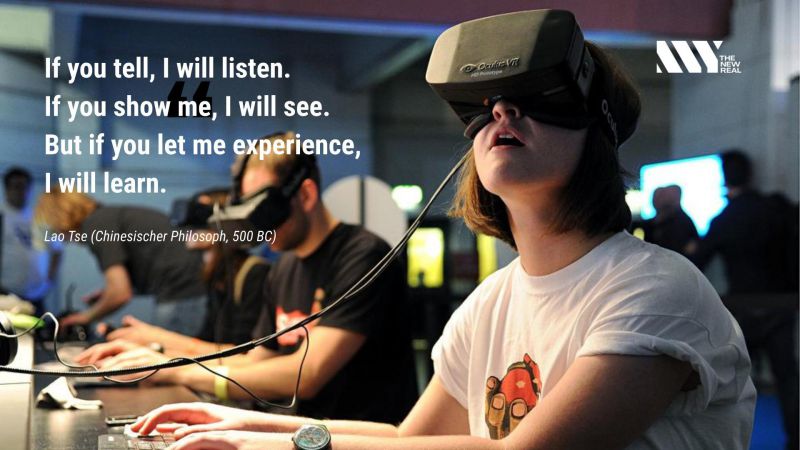
Innovation in Germany works
The German Bundeswehr uses the Cyber Innovation Hub as an "innovation accelerator" in collaboration with various tech startups. One project is VR training for firefighting for the German navy.
What scenarios are suitable for virtual reality?
Extinguishing fires simulated with VR
As we reported in our article VR Training for Companies, the Fire Protection Authority of Australia has been working with the virtual reality training program FLAIM for years to teach efficient and effective firefighting in Australia. An immersive technology like virtual reality convincingly simulates what a real large-scale fire feels like and how to counter it without real-life exposure to the trainee.
Find out moreMixed Reality Software: It Does Work without People
A little thought experiment: What if we not only supported training virtually, but virtualized the process completely, all the way to the actual qualification? Training content is not only taught in a virtual reality environment; but the app includes the entire curriculum plus the degree. Trainees can take exams in virtual reality and graduate with the help of intelligent software - without any human intervention. The software evaluates user behavior and optimizes the training process individually to improve learning success for trainees. Sounds far-fetched? This has already been successfully implemented by Lufthansa.
In a Nutshell: All Signs Point to Digitization...
-
▼
In Germany, there is (still) a lack of digitalization in many places
-
▼
VR simulations are already common practice internationally
-
▼
Mixed reality can help with the shortage of skilled workers
-
▼
MR stimulates the eyes, ears and mind
-
▼
First authorities are on the right track
The Aviation Industry Is one Step ahead
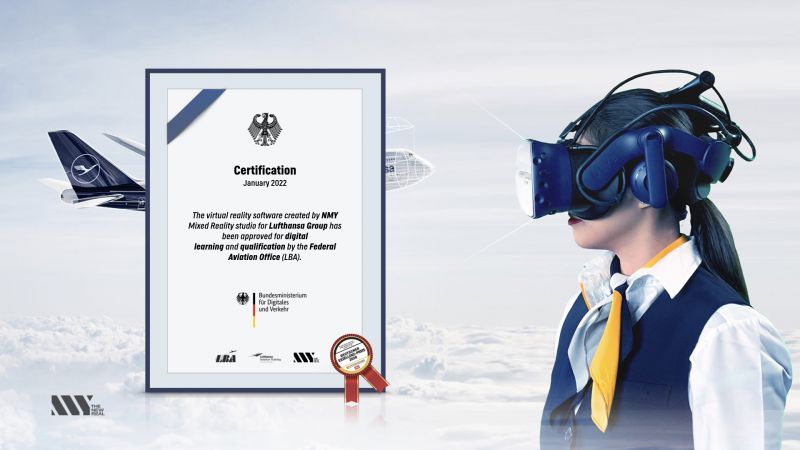
Certified Virtual Reality Training for Lufthansa
With the Virtual Aviation Training program we created for Lufthansa Aviation Training, we actively accompanied the transformation of a predominantly analog training into a modular virtual reality platform. 20,000 flight attendants per year benefit from virtual training and qualification. This also convinced the German Federal Aviation Office, which issued Lufthansa Aviation Training with a certificate for the training program.
Find out more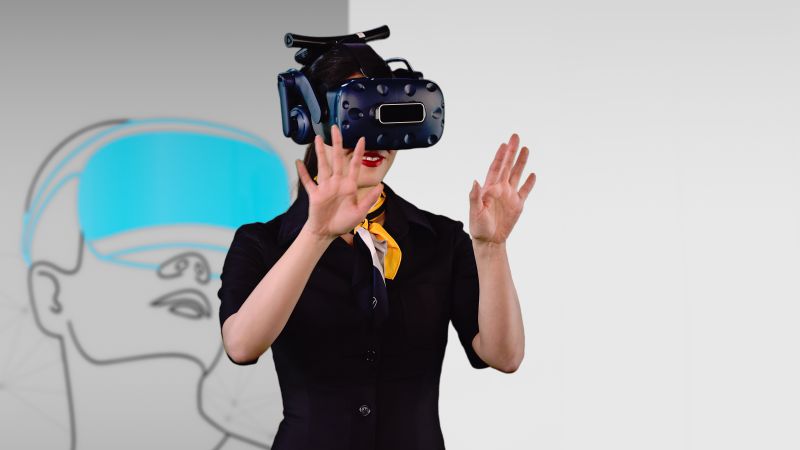
Excellence Enabled by Mixed Reality
Virtual Aviation Training was also awarded the [German Excellence Award 2020] in the field of education and training, further proof that the corporate landscape in Germany is opening up to virtual training. Lufthansa is taking a pioneering position here.
Teaching Teachers in VR

Virtual training for Teachers
We are currently developing a virtual classroom for future teachers with the Goethe University in Frankfurt to train conflict management in various scenarios. The virtual reality application simulates situations in everyday school life that teachers frequently encounter when facing students.
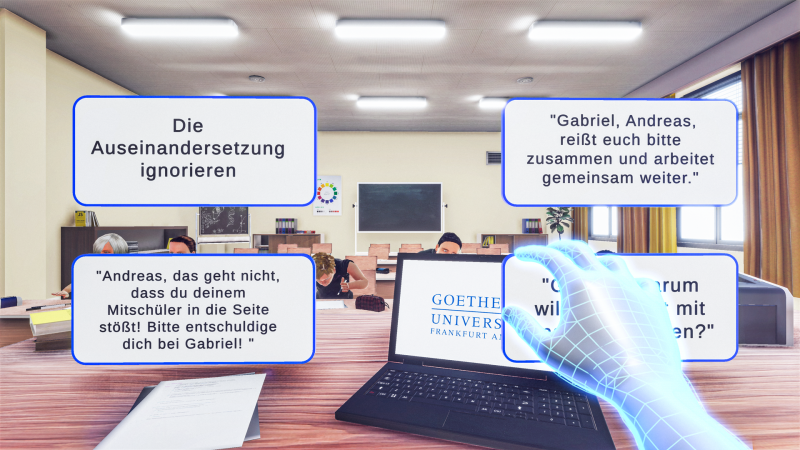
Acting Correctly in Conflict Situations Can Be Learned
Dispute resolution, non-violent communication and conflict resolution are skills that teachers need in addition to knowledge transfer in their work with students. Until now, university studies have offered few opportunities to test pedagogical principles in realistic situations beyond courses and seminars. In our VR app, users assume the position of a teacher who is trained in handling conflict situations in virtual space via multiple choice tasks.
The Future of Education Is Virtual
If Germany wants to remain competitive in the future, there is no way around revolutionizing education and training. Otherwise, we will lose too many valuable employees. We are pleased that Lufthansa and the Federal Aviation Office share our vision of new training formats and are going down this path with us. With virtual reality training, the time and place of the training and the origin of the trainees no longer play a role, undoubtedly an advantage. Integrated virtual assistants help trainees complete tasks in different languages and accompany them through each training scenario.
Takeaway: Training with Mixed Reality Technologies
-
01
Innovation
Offers new opportunities for training
-
02
Fun
Motivates and encourages trainees
-
03
Flexibility
Works independent of location & time
-
04
Scalability
Reduces resources through scalability
Artificial Intelligence, the Perfect Match for Mixed Reality
The increasingly pronounced integration of artificial intelligence (AI) in the future will also be reflected in the quality of so-called virtual assistants, which will play an important role in digital education delivery in support of real educational content. Human teachers will not become obsolete; the human touch is and will remain pedagogically valuable.
If we manage to merge digital and analog, we can expect the best results for trainees and students. The high learning curve in mixed reality applications, coupled with content delivered by competent teachers improves the level of learning quite significantly. Especially in the Corona pandemic, the fatal effect of negligence in the digitalization of German schools has been clearly demonstrated. Today, we already have the chance to learn from yesterday's mistakes. Let's not waste it!
Conclusion
“Rome wasn’t built in a day, but we strongly believe in the digital potential in Germany and are convinced that mixed reality trainings provide more fun and motivation and thus attract more trainees from Germany and abroad. At the same time, they offer the advantage of potentially establishing new forms of training. As is so often the case in Germany: better late than never. ”
Are you an instructor looking for new training formats?
Do you want to add mixed reality to existing learning modules?
Or setting up a completely virtual training program?
